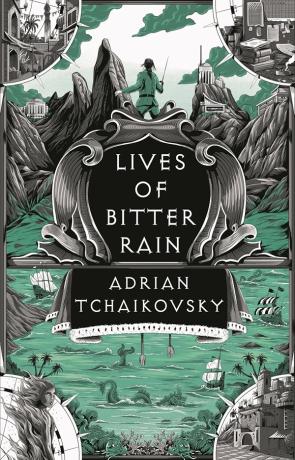What Makes a Good Science Fiction Book
 One of the big issues with speculative fiction novels I see when I write book reviews is the disparity in the quality, seemingly more than many other form of literature science fiction and it's brother fantasy seem to be an area with a massive range in the ability of the authors. This appears to be compounded by the literary explosion that is "self publishing".
One of the big issues with speculative fiction novels I see when I write book reviews is the disparity in the quality, seemingly more than many other form of literature science fiction and it's brother fantasy seem to be an area with a massive range in the ability of the authors. This appears to be compounded by the literary explosion that is "self publishing".
Don't get me wrong there are some incredibly talented authors who self publish but this new freedom has also opened the flood gates for every man and his monkey to "have a go" and seperating the good from the bad can be very time consuming.
I do firmly believe that despite this the very best genre authors are more talented by far than the very best literary authors.
In my humble opinion the basic required ingredients to write good science fiction are:
1) Entertainment value. The whole reason to read a novel is to be entertained, if the story isn't entertaining then it's fallen at the first hurdle and will be quickly abandoned.
2) Sense of Wonder. Any good book should evoke a sense of wonder in the reader; this is one of the defining tenants of science fiction and a primary reason why people are drawn to the genre. To dream of travelling through time, see other planets and meet alien species are all reason's why someone becomes a fan of sci fi to begin with.
3) Quality writing. Ok this one speaks for itself here but you would be surprised how many novels are written by authors who have littler grasp of the written language. It's also important to develop your own style and avoid mimicking others.
4) Willing suspension of disbelief. Make sure you read that right as it's not a method of supporting any male private parts but it's one of the biggest reasons why some novels float and others sink without trace. The technology described must be believable, or explained in such a way that makes it believable.
5) Get a good Title. Seriously, this can make all the difference, while Shakespeare famously wrote "What's in a name? That which we call a rose by any other name would smell as sweet" (he clearly never considered the name stink bottom) as far as books go it provides an identity, a badge if you will and even the most talented of writers often produce names that for everyone but them seem obscure or even worse already exist in some other form of media. I personally dislike titles that don't trip of the tongue or are hard to pronounce, although I don't let it colour my experience of the book itself (at least not consciously anyway).
Even with all of the above in place it is possible for a bad book to be written (and believe me there are many out there), but these points can really help.
One of the easiest and most effective things an aspiring writer can do is to read as many books from as many authors as possible for as long as possible, and then practice writing their own style.
On a final note after you've written your magnum opus and are ready to go, get the book edited. A good editor can make a massive difference to the finished story and these people are worth their weight in hardbacks (if not gold).
News Archives
- August 2024
- July 2023
- April 2023
- February 2023
- September 2022
- March 2022
- February 2022
- July 2021
- June 2021
- April 2021
- March 2021
- January 2021
- October 2020
- September 2020
- June 2020
- March 2020
- May 2019
- January 2019
- November 2018
- January 2016
- September 2015
- August 2015
- July 2015
- June 2015
- May 2015
- April 2015
- March 2015
- January 2015
- October 2014
- June 2014
- April 2014
- March 2014
- February 2014
- January 2014
- December 2013
- November 2013
- October 2013
- September 2013
- June 2013
- May 2013
- April 2013
- March 2013
- January 2013
- December 2012
- November 2012
- August 2012
- July 2012
- June 2012
- May 2012
- April 2012
- March 2012
- February 2012
- January 2012
- December 2011
- November 2011
- October 2011
- September 2011
- August 2011
- July 2011
- June 2011
- May 2011
- April 2011
- March 2011
- February 2011
- January 2011
- December 2010
- November 2010
- October 2010
- September 2010
- August 2010
- July 2010
- June 2010
- May 2010
- April 2010
- March 2010
- February 2010
- January 2010
- December 2009
- November 2009
- October 2009
- September 2009
- August 2009
- July 2009
- June 2009
- May 2009
- April 2009
- March 2009
- February 2009
- January 2009
- December 2008
- November 2008
- October 2008
- September 2008
